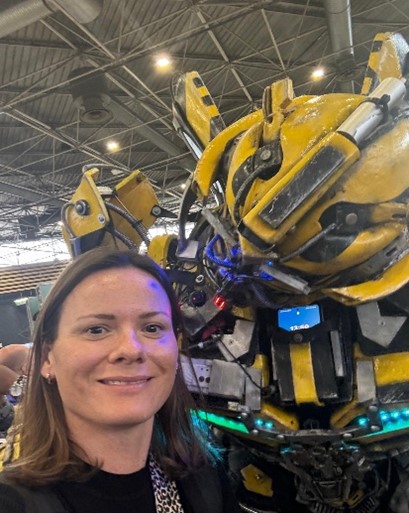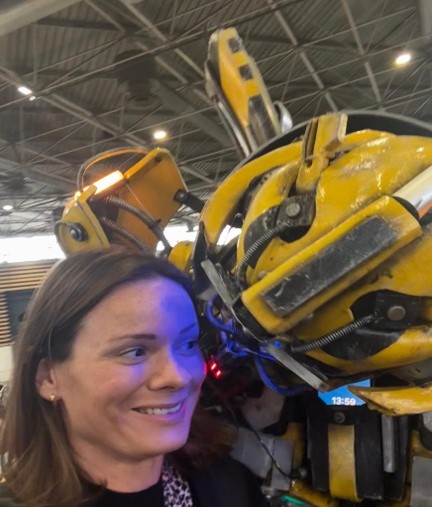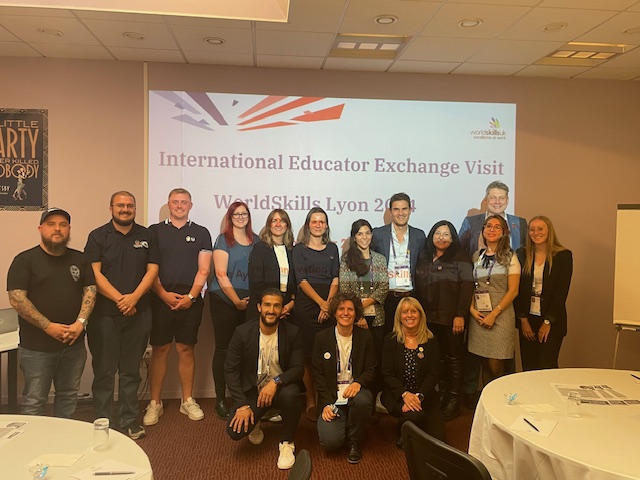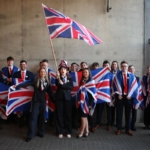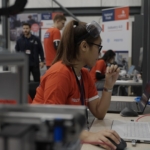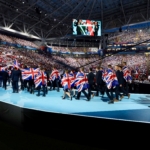Dr Blanka Hilton, Lecturer in Applied Bioscience (level 4-7), Programme Lead for Level 7 Research Scientist / MSc in Applied Drug Discovery and Development

Involvement with WorldSkills UK and WorldSkills France
As a relatively new member of the WorldSkills UK Centre of Excellence, I was fortunate to participate in an international exchange with WorldSkills France in Lyon. This experience provided a unique opportunity to engage with educational leaders from both countries and gain insight into how technical skills are fostered globally. The WorldSkills international competition, often referred to as the ‘skills Olympics’, featured 64 skills, ranging from traditional trades to emerging technologies. I was able to observe these skills being demonstrated at an elite level and participate in 51 “Try-a-Skill” stations, which offered a comprehensive view of global standards in technical expertise.
A key takeaway from this experience was the importance of international benchmarking in technical education. WorldSkills France’s approach to skills development mirrored the framework we use in apprenticeship programmes. Each skill had clear assessment criteria and emphasised not only technical proficiency but also behaviours such as adaptability, problem-solving, and self-management. This reinforced my belief that technical education must prepare students for a global workforce, not just national standards. Integrating lessons from WorldSkills France could significantly elevate our teaching and assessment approach in the UK, promoting greater collaboration between institutions.
Gaining Insight and Learning from WorldSkills France
The exchange with WorldSkills France provided new ideas for improving technical education. Observing the competition highlighted the importance of adaptability and innovation, particularly in response to rapid technological advancements, including artificial intelligence (AI). One key takeaway was the value of integrating technologies like virtual reality (VR) into both teaching and assessment. I shared my innovative practices with WorldSkills France, particularly regarding the use of VR in training.
WorldSkills France demonstrated how flexibility and responsiveness can be embedded into training programmes, qualities I now see as critical for students in today’s workforce. As the global workplace becomes more technology-driven, the ability to adapt to new tools and environments will be crucial. For example, observing how technical skills were tested made me reflect on our own science apprenticeship programme. We have already started integrating VR into our training, and this exchange validated our efforts. Moving forward, we aim to expand VR usage to include new assessments, giving students hands-on experience in simulated environments that mirror the rapidly changing nature of real-world workplaces.
WorldSkills France also placed a strong emphasis on sustainability, both in terms of the technologies used and the approaches to training. This focus aligns closely with our goals at the University of Kent, particularly in offering more flexible approaches in pedagogy and laboratory training. The exchange and competitions highlighted the potential for developing virtual and remote learning technologies that could deliver high-quality training without the need for physical resources, an area I am eager to explore further.
Career and Professional Development
My participation in the WorldSkills UK and WorldSkills France exchange has had a significant impact on my professional development. The exposure to global standards of technical skills has provided a fresh perspective on how to innovate teaching methods, particularly by integrating technologies like VR into the curriculum. Observing the chemical laboratory technology competition, where the UK was represented, was especially inspiring. The competition highlighted the importance of developing not just technical skills, but also adaptability and organisational abilities, which are vital for success in the scientific field.
This experience has motivated me to expand training opportunities for our apprentices at the University of Kent. For example, I plan to develop a VR-based laboratory safety and training programme in collaboration with Dr Stephen Hilton, offering apprentices the flexibility to simulate laboratory environments without the need for physical space. This mirrors the adaptability and organisational skills I witnessed during the competition in Lyon and prepares students for global scientific careers.
Additionally, this exchange highlighted the potential of integrating international collaborations into apprenticeship programmes. Partnering with institutions like WorldSkills France could expose our students to different approaches to skills development, making them more adaptable and well-rounded professionals. This is an exciting prospect that could strengthen both our curriculum and our students’ employability.
Impact on Teaching and Training
My involvement with WorldSkills UK and the insights gained from WorldSkills France have already led to improvements in our teaching and training programmes. The competition showcased how a blend of technical knowledge, soft skills, and behavioural competencies is essential for success in today’s global job market. This has prompted us to rethink how we assess apprentices, moving beyond traditional methods to incorporate more dynamic, real-world scenarios.
One major change has been the integration of VR into our science apprenticeships. Inspired by the technological innovations observed in Lyon, we are developing VR simulations for key laboratory techniques, such as high-performance liquid chromatography (HPLC). These simulations will allow students to practice their skills in a virtual setting, reducing the environmental impact of traditional laboratory training while also making the learning experience more engaging.
Additionally, WorldSkills France’s emphasis on adaptability has influenced how we design our training programmes. We now focus on preparing students for the unexpected, helping them build resilience and problem-solving skills necessary to thrive in an evolving workplace. This includes introducing real-time assessments and challenges that require students to think on their feet, mirroring the high-pressure environment of international competitions.
Future Integration with WorldSkills France
Looking ahead, the collaboration between WorldSkills UK and WorldSkills France presents numerous opportunities. One exciting possibility is the development of VR-based training modules accessible internationally. By collaborating with WorldSkills France, we can create shared resources that offer students high-quality, flexible training solutions, regardless of their location. This would enhance the accessibility of technical education and reduce the environmental impact of traditional training methods.
We also plan to explore sending students to participate in international competitions hosted by WorldSkills. This would provide them with valuable experience, exposing them to different training environments and giving them the chance to benchmark their skills against global standards. It would also strengthen the international dimension of our apprenticeship programmes, making our graduates more competitive in the global job market.
Sustainable Impact of Participation
The long-lasting impact of my involvement with WorldSkills UK and France is clear. By integrating the lessons learned into our teaching and training programmes, we are creating a more flexible, innovative, and accessible learning environment for our students. The use of VR and other emerging technologies will reduce the environmental impact of traditional training methods while providing students with the skills they need to succeed in a rapidly changing world.
